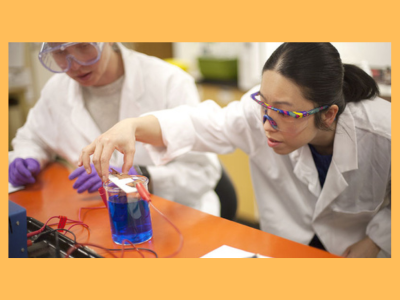Associate of Science (AS) degrees are two-year undergraduate programs that focus on scientific or technical subjects. These degrees are designed to provide students with a strong foundation in the sciences and prepare them for entry-level positions in various fields or transfer to a four-year college or university. AS degrees are popular among students who want to pursue careers in healthcare, technology, environmental science, and other science-related fields.
The curriculum and coursework for an AS degree vary depending on the college or university. However, most programs require students to complete general education courses in math, science, and humanities, as well as courses in their chosen field of study. Students may also have the option to specialize in a particular area of science, such as biology, chemistry, physics, or environmental science. Some colleges and universities offer online AS programs that allow students to complete coursework at their own pace and on their own schedule.
Overall, an AS degree can provide students with a solid foundation in the sciences and open up a wide range of career opportunities. Whether students want to pursue a career in healthcare, technology, or environmental science, an AS degree can help them achieve their goals. In the following sections, we will explore the curriculum and coursework for an AS degree, career pathways with an AS degree, admission requirements and process, and accreditation and educational standards.
Key Takeaways
- Associate of Science (AS) degrees are two-year undergraduate programs that focus on scientific or technical subjects.
- The curriculum and coursework for an AS degree vary depending on the college or university, but most programs require students to complete general education courses in math, science, and humanities, as well as courses in their chosen field of study.
- An AS degree can provide students with a solid foundation in the sciences and open up a wide range of career opportunities.
Overview of Associate of Science Degrees
Associate of Science (AS) degrees are undergraduate degrees that are typically completed in two years. They are designed to provide students with foundational knowledge in scientific or technical subjects, such as mathematics, physics, chemistry, biology, engineering, computer science, and health sciences.
AS degrees are often offered by community colleges, but can also be obtained from some four-year colleges and universities. Many online programs also offer AS degrees, providing a flexible and affordable option for adult learners.
The requirements for an AS degree vary depending on the institution, but typically include a mix of general education courses and courses specific to the chosen field of study. General education courses may include English composition, humanities, social sciences, and natural sciences. Courses specific to the chosen field of study may include mathematics, computer programming, laboratory work, and specialized courses in the chosen field.
AS degrees can serve as a stepping stone to a bachelor’s degree in a related field. Students who complete an AS degree can transfer to a four-year college or university to complete a bachelor’s degree. In fact, many AS degrees are designed to transfer seamlessly to a four-year institution.
Some students choose to enter the workforce immediately after completing an AS degree. AS degrees can provide the necessary skills and knowledge for entry-level positions in fields such as healthcare, engineering, computer science, and more.
Overall, AS degrees are a valuable option for students who want to gain foundational knowledge in scientific or technical subjects, whether they plan to transfer to a four-year institution or enter the workforce immediately after graduation.
Curriculum and Coursework
Associate of Science (AS) degree programs are designed to provide students with a strong foundation in scientific or technical subjects. The curriculum of an AS degree program typically includes courses in core sciences, mathematics, and electives.

Core Sciences
The core sciences courses in an AS degree program may include biology, chemistry, physics, and earth science. These courses are designed to provide students with a broad understanding of the natural world and the scientific principles that govern it.
Mathematics Requirements
Mathematics courses are an essential component of an AS degree program. Students are typically required to complete courses in calculus, statistics, and other advanced mathematics topics. These courses are designed to provide students with the quantitative skills necessary to succeed in scientific and technical fields.
Electives and Specializations
AS degree programs often allow students to choose from a variety of electives and specializations. These courses may include computer science, engineering, environmental science, and health sciences. Students may also have the opportunity to specialize in a particular field, such as biotechnology or environmental science.
Overall, an AS degree program provides students with a strong foundation in scientific and technical subjects. Graduates of these programs are well-prepared for further study in a bachelor’s degree program or for entry-level positions in scientific and technical fields.
Career Pathways with an Associate of Science
An Associate of Science (AS) degree is a two-year program that provides foundational knowledge in science, technology, engineering, and mathematics (STEM) subjects. Students who pursue an AS degree can choose from a wide range of career pathways, including Health Sciences, Engineering and Technology, and Environmental Studies.
Health Sciences
Healthcare is a rapidly growing field, and an AS degree can help students pursue various careers in this industry. Some popular career paths include:
- Nursing: With an AS degree in nursing, students can become registered nurses (RNs) and work in hospitals, clinics, and other healthcare settings. According to Indeed, the average salary for an RN with an AS degree is $73,000 per year.
- Medical Assisting: Medical assistants work alongside physicians and other healthcare professionals to provide patient care. With an AS degree in medical assisting, students can pursue careers in hospitals, clinics, and other healthcare settings. According to CollegeVine, the average salary for a medical assistant with an AS degree is $34,000 per year.
- Radiologic Technology: Radiologic technologists use medical imaging equipment to create images of the body for diagnostic purposes. With an AS degree in radiologic technology, students can pursue careers in hospitals, clinics, and other healthcare settings. According to Indeed, the average salary for a radiologic technologist with an AS degree is $68,000 per year.

Engineering and Technology
The field of engineering and technology is constantly evolving, and an AS degree can help students pursue various careers in this industry. Some popular career paths include:
- Computer Science: With an AS degree in computer science, students can pursue careers in software development, web development, and other technology-related fields. According to Tallo, the average salary for a web developer with an AS degree is $73,000 per year.
- Electrical Engineering: Electrical engineers design and develop electrical systems and components. With an AS degree in electrical engineering, students can pursue careers in manufacturing, construction, and other industries. According to CollegeVine, the average salary for an electrical engineering technician with an AS degree is $65,000 per year.
- Mechanical Engineering: Mechanical engineers design and develop mechanical systems and components. With an AS degree in mechanical engineering, students can pursue careers in manufacturing, construction, and other industries. According to CollegeVine, the average salary for a mechanical engineering technician with an AS degree is $58,000 per year.
Environmental Studies
Environmental studies is an interdisciplinary field that focuses on the environment and its relationship with human society. With an AS degree in environmental studies, students can pursue various careers in this field, including:
- Environmental Science: Environmental scientists study the natural environment and how it is affected by human activity. With an AS degree in environmental science, students can pursue careers in government agencies, non-profit organizations, and other industries. According to CollegeVine, the average salary for an environmental science technician with an AS degree is $46,000 per year.
- Renewable Energy: Renewable energy is an increasingly important field, and an AS degree in renewable energy can help students pursue careers in this industry. Some popular career paths include solar panel installation, wind turbine maintenance, and energy auditing. According to Tallo, the average salary for a solar panel installer with an AS degree is $45,000 per year.
- Sustainability: Sustainability is a broad field that encompasses many different aspects of environmental studies, including energy, waste management, and social responsibility. With an AS degree in sustainability, students can pursue careers in government agencies, non-profit organizations, and other industries. According to CollegeVine, the average salary for a sustainability coordinator with an AS degree is $52,000 per year.
Admission Requirements and Process
To be admitted to an Associate of Science (AS) degree program, students must meet certain requirements. These requirements vary depending on the institution, but most schools require a high school diploma or GED equivalent. Some schools may also require a minimum GPA or specific coursework in math and science.
Once students have met the admission requirements, they can begin the application process. This typically involves submitting an application form and transcripts from previous schools attended. Some schools may also require standardized test scores, such as the SAT or ACT.
In addition to meeting the admission requirements and submitting an application, students may also need to complete an interview or essay as part of the application process. This is especially true for highly competitive programs.
Overall, the admission requirements and process for AS degree programs can vary depending on the school and program. It is important for students to carefully review the requirements and deadlines for each program they are interested in and to submit a complete and accurate application.
Accreditation and Educational Standards
Associate of Science degrees are offered by a variety of colleges and universities across the United States. Accreditation is a critical component of the quality assurance process for these degrees. Accreditation ensures that institutions meet specific educational standards and that their programs provide students with the knowledge and skills necessary to succeed in their chosen fields.
There are several accrediting bodies that evaluate and accredit Associate of Science degree programs. One of the most prominent accrediting bodies is the Accreditation Board for Engineering and Technology (ABET). ABET is a non-profit organization that accredits programs in applied and natural science, computing, engineering, and engineering technology. ABET accreditation is an important indicator of program quality and is recognized by employers, licensing bodies, and other educational institutions.
In addition to ABET, there are other accrediting bodies that evaluate Associate of Science degree programs. These include regional accrediting bodies such as the Higher Learning Commission (HLC) and programmatic accrediting bodies such as the Commission on Accreditation of Allied Health Education Programs (CAAHEP). Regional accrediting bodies evaluate entire institutions, while programmatic accrediting bodies evaluate specific programs.
Educational standards for Associate of Science degree programs vary depending on the program and the accrediting body. However, there are some common educational standards that are typically required for these degrees. These include a strong foundation in mathematics and science, critical thinking skills, effective communication skills, and the ability to work collaboratively in teams. Students in Associate of Science degree programs may also be required to complete general education courses in areas such as humanities, social sciences, and English composition.

